‘Don’t fall behind’ - Taking and selling properties left to local discretion
|
Published: 06-14-2024 2:11 PM
Modified: 06-14-2024 4:56 PM |
Days before the city of Concord was set to sell his house, Jeffrey Cyr made a budget to spend his life savings.
His son had taken out a loan for $16,800 to save his father’s house from the auction block. In return, Cyr agreed to pay him back in $400 monthly installments.
It was that or he’d lose his two-bedroom, single-wide manufactured home at a public auction on Jan. 26 after the city seized it for unpaid property taxes.
“Thirty years of living here and paying the mortgage and doing everything else,” he said. “But don’t fall behind.”
The retired Pembroke fire captain had fallen behind on his taxes before – he missed payments in 2021 and 2022. But last year he suffered a stroke that forced him to retire and he missed his tax bill again, bringing the total amount owed through taxes, interest and fines to nearly $14,000.
The city took ownership of Cyr’s house at the end of October. He was given 90 days’ notice that he could pay the bill or it would be sold. In those three months, he scrambled to talk to family members about his options and tried to apply for assistance.
“It’s a big circle. Once you fall into peril, you just cannot recover,” he said. “My property is not worth a hell of a lot of money but it almost cost me everything just to stay in my home that I worked all my life to retire with some dignity and remain.”
By state law, towns and cities can seize properties after three years of unpaid taxes and sell them to recoup revenue. The law can be used as a tool to put delinquent property back on the tax rolls or strike like a cudgel against the poorest residents.
Article continues after...
Yesterday's Most Read Articles
 Surplus seller Ollie’s enters New Hampshire, opens in Belmont
Surplus seller Ollie’s enters New Hampshire, opens in Belmont
 Riverbend to close adult mental health housing facility in Concord due to funding challenges
Riverbend to close adult mental health housing facility in Concord due to funding challenges
 Celebrating National Ice Cream Day with Richardson’s Farm: ‘Nobody else does what we do’
Celebrating National Ice Cream Day with Richardson’s Farm: ‘Nobody else does what we do’
 City officials reject the work of an outside consultant hired to lead Concord’s diversity initiatives
City officials reject the work of an outside consultant hired to lead Concord’s diversity initiatives
 Affordable townhouse expansion gets green light
Affordable townhouse expansion gets green light
The process plays out differently across the state. Varying interpretations of the statute mean the decisions on whether or not to seize and/or sell property are left to local discretion. Moreover, no state agency is monitoring the process to make sure communities are following the rules when they take or dispose of property, often from the working poor, retirees or those living on fixed incomes.
A Concord Monitor analysis of 10 years of deed transfers across the Granite State determined local governments have seized property from owners who fell behind on their tax bills 4,000 times in the last decade.
Concord’s tax collector said she views the law as a strict set of guidelines with little flexibility. If a homeowner asks, help is offered, as long as city officials perceive a “good faith effort.”
In the state’s largest city, Manchester’s tax collector sees the same language as a minimum set of requirements for how she should do her job. Rather than simply send notices by certified mail as the law states, she will go door to door trying to reach homeowners and initiate payment plans before the city takes ownership.
In Berlin, the majority of property taken in the state’s northernmost city has been vacant, dilapidated parcels. The city keeps the process slow, giving former owners the maximum of three years to reclaim their property before initiating a sale.
With the clock ticking, Cyr’s son cosigned the loan so his father could buy it back from the city at the 11th hour. Forget about living his golden years in comfort; the little money he saved will now go to salvage his home from government hands.
In the end, the city can’t avoid the seizure of homeowners’ property if they don’t take advantage of available resources, Concord Mayor Byron Champlin said.
“Ultimately, I hate to use a really tired metaphor, but you can lead a horse to water but you can’t make them drink,” Champlin said. “At what point is the community responsible for that person’s action or inaction?”
Pamela Laflamme, Berlin’s assistant city manager, is an atlas of property acquired through tax deeds.
When hundreds of jobs went up in smoke with the paper mills closing in 2006, owners packed up and stopped paying taxes. Left with a glut of abandoned properties, the city seized a total of 208, the most statewide from 2013 to 2023, according to a Concord Monitor analysis.
The former mill city uses the tax deed process as a tool of revitalization, said Laflamme. Most properties in city possession are boarded up with the water shut off.
A padlock seals the door at the yellow-shingled house on Western Avenue. Rotted wood frames a broken window along the side and spray-painted letters on the garage read “stay out.”
The building is set to be demolished this summer and the land sold to a new owner.
Nearby on 2nd Avenue, what was once a dark-green dilapidated two-story home now has an American flag hanging outside its bay windows and outdoor furniture on the front porch. After being abandoned, neighbors bought it for just over $7,000, rehabbed it and resold it for $215,000.
Laflamme is quick to point out this house as a good example of how the deed process can bolster the city’s revitalization efforts.
“A lot of the properties that we’ve taken over time were just really in poor condition and just either abandoned or was a relative who passed away and nobody in the family stepped forward for it,” Laflamme said.
When properties are sold, the new owner is handed a list of necessary repairs to bring the building up to code.
Laflamme can only think of one instance in Berlin where tenants were evicted after their landlord didn’t pay the taxes.
“The city, and I would say most communities would agree, doesn’t want to be a landlord,” said Laflamme, a common phrase repeated by many tax collectors statewide.
When Concord decided to sell five properties at a public auction in January, giving the highest bidder the power to evict the current residents in the three occupied homes, the city’s elected officials weren’t told.
A March report from Dawn Enwright, the tax collector at the time who took a new job in Nashua in May, acknowledged that the council was never notified prior to the January auction due to an “inadvertent error.” The list of tax-deeded property should have been brought before the City Council, Planning Board and Conservation Commission.
In the state’s capital city of 44,000 that hosts a $170 million municipal budget, the decision to seize and sell these properties for $65,000 owed in back taxes was made with no public oversight. Away from the public eye, an internal board of city employees, which officials say generates no public records, determines the fate of those who are struggling to pay their taxes.
Under New Hampshire state law, municipal tax collectors have full authority to take properties for back taxes without the approval of a select board or city council.
Once a property is seized, owners have a three-year period where they can buy it back. If municipalities want to sell during this time, they are required to give a 90-day notice.
In Concord, Enwright’s interpretation of the law meant a quick sale. The law provides little wiggle room in her eyes.
“You don’t have choices to make,” she said. “You have a job to follow.”
The January auction took place 108 days after the city took ownership of properties.
Cyr, 66, bought his house in 2004 after renting the property for several years. He and his wife were late on their tax bills years prior – in 2011 they owed $2,400, in 2013 they were short $2,500. But they’d always paid up before their property was in jeopardy.
Yet, for two decades, he has watched his tax bill rise. Ten years ago, his property was worth just over $93,000, with an annual tax bill of $2,400.
In 2024, his home was valued at $134,300. Taxes hover around $3,600.
Even when the city lowered its tax rate in 2021, property values were on the rise, leading to higher, not lower, tax bills. Cyr saw the largest increase to his bill that year when his property value spiked by nearly $30,000, adding an additional $550 to his annual taxes.
Cyr blames superfluous city spending that always goes up, never down.
“There’s a cost to everything. You can’t keep coming back and saying well Mr. and Mrs. Cyr we are going to raise your property taxes by X amount,” he said. “The city budget is a cistern, it is not a well. You can’t keep going back to the well of taxpayers and raise it any way you want without seriously affecting lives.”
For 23 years, Cyr served as an on-call firefighter in the nearby town of Pembroke. After the stroke, his speech slowed, with lapses in his memory. He lost his job and license, forcing him to retire, dependent on his Social Security as his only income source.
Now he has to decide each month what he can afford to pay, and what can hold off until later. It’s a risky gamble.
“Your electric bill? Gasoline in your car to go get your necessities? Do you want to eat?” he said. “You have to supplement your monthly income with food pantries or anything else just to survive.”
Prior to the auction, the city pointed Cyr in the direction of the Homeowners Assistance Fund, which could help pay off his back taxes with federal pandemic relief money. With no internet at home, he needed help accessing the online application.
In the end, he settled for the loan.
Out of the seven houses Concord seized, Cyr and one other owner were able to buy back. The rest went to auction, with three of them occupied. A clear notice was given to new owners that they would be responsible for the eviction process.
“The city doesn’t want to be in that eviction. It’s obviously easier if there’s nobody living in the property,” said Brian LeBrun, Concord’s Deputy City Manager for Finance.
When a home is occupied, the city will try to refer residents to its Human Services department, which can help with rental assistance or know of housing options in the area, said LeBrun.
“There are times where there’s a property that’s being taken, and we recognize the hardship of the person who’s actually in the property or owns the property,” he said. “If we can have some help and support for what that person might do, even if we’re not the one doing the eviction, there are certainly times where we want to be involved in trying to help that person land on their feet as best as possible through this process.”
Concord’s mayor admits he’s not sure what the solution is to help homeowners who have an inability to pay.
“Concord understands that it doesn’t serve the community to put people out of their homes,” Champlin said. “But on the other hand, conversely, it also doesn’t serve the community to have people not pay their taxes, so there’s a balance.”
To Champlin, Concord’s process does two things: It protects the city from liability by selling quickly and it shields homeowners from public scrutiny by having decisions made behind closed doors.
“The city doesn’t rush into this,” he said. “I think a serious effort is made by deeply committed and concerned staff. Multiple departments in the city are part of the decision-making process and high-level people in those departments are trying to find solutions to avoid deeding a property.”
Concord failed to consider one possible solution when Champlin was on the City Council in 2022. The city received $4.6 million from the American Rescue Plan Act to “meet pandemic response needs and rebuild a strong, and more equitable economy as the country recovers,” according to a report from LeBrun.
The council unanimously voted to move the majority of this money, $3 million, into the city’s general fund, which primarily went to pay for employee salaries and benefits. The rest was dispersed to various city accounts, including the parking and solid waste funds.
Champlin said the goal was to keep the tax rate low for residents. But there was no conversation about targeted aid for the people struggling financially, like forgiving interest on outstanding property taxes. Treasury guidelines of how to spend these funds included “helping households” recover from the economic impacts of the pandemic.
“Hindsight is always 2020,” Champlin said. “I think we made the best decision we could at the time with the facts that we had.”
As Enwright began the process to take possession of seven homes from owners last October, the City Council voted unanimously to waive taking 44 other properties at the recommendation of city staff.
State law allows municipalities to reject ownership of a property if it would cause a liability.
The New Hampshire Municipal Association, which provides legal counsel and guidance for towns and cities statewide, advises tax collectors to consider environmental hazards or building quality when taking a property, said Stephen Buckley, the director of the legal services program.
Taking a property that is currently occupied and then becoming the landlord could also constitute a liability for the town, he said.
Enwright turns back to state law to guide her decisions. Chapter 80, the collection of taxes and its 91 sections, lays the strict roadwork for her to do her job. She began a new position as tax collector in the city of Nashua on May 29.
“The collector may distrain the goods, chattels, personal estate, property interest, right, or credit of such person upon his neglect or refusal to pay the tax assessed upon him,” the law states.
Brenda Masweic Adams, Manchester’s tax collector, views the state statues as a road with many exits that bring them to the final destination. There is an ability to veer off one way or take the long-winding backroads.
When she starts her process, an array of colorful fliers engulfs her desk. When the notice lands in a homeowner’s mailbox, she purposefully hopes they’re hard to ignore. She’ll also try to reach property owners by phone, before knocking on the doors with the city attorney.
She goes above the legal requirement to mail out a 30-day intent to deed notice. To her, state law provides a bare minimum of communication a homeowner should receive.
“It’s not sufficient,” she said. “I go the extra mile and someone may think it’s risky but I think it’s worth it… If we didn’t go out and speak with them, we would have taken their property when we could have actually helped them stay in their home.”
Manchester has one of the lowest rates of tax deeds per capita statewide. Of the 115,000 residents that live there, one in 10 lives below the poverty line. The city has nearly equal numbers of single-family homes as multi-unit apartment complexes.
In the last decade, 63 properties were taken in Manchester for unpaid taxes. With two-fifths of the population, Concord by contrast took 33 properties.
Enwright views the law more narrowly.
That means sending out notices in the mail prior to a lien or a deed but nothing more. If a homeowner contacted her, she would be happy to pass that call through to Concord’s Human Services department, but state statutes do not say that she has to initiate that offer first.
“Our job is to collect taxes,” she said. “We have the laws. The laws dictate what we shall do.”
The state legislature has made few changes to the tax deed law in the last 10 years.
In 2020 a state Supreme Court court case ruled that municipalities could not profit off these sales, after Richard Polonsky, a resident of Bedford, sued the town for taking his $300,000 home for a fraction of its worth – the $94,000 he owed in back taxes, interest and penalties.
The New Hampshire Supreme Court ruled that the town could take the property, but the owner was entitled to “equitable relief,” or any excess proceeds the town received from the sale.
Last year, Geraldine Tyler, a 94-year-old woman in Minnesota, made the same case. Her local county sold her home for $40,000 and kept the profit from a $15,000 unpaid tax bill. The United States Supreme Court sided with Tyler, stating that municipalities can’t profit from these sales.
At the Concord auction, the city sold the five properties for $427,500. After recouping the back taxes owed and returning costs to the prior owners, state law allows the city to keep 10 percent of the assessed value of properties. The City Council voted to put that remaining penalty of $38,000 in an account for care and management of future tax-deeded property.
In 2018, a bill in the state legislature to lower the interest rate from 12 to 8 percent for delinquent taxes and from 18 to 14 percent for liens was signed into law by Gov. Chris Sununu.
Advocates and housing lawyers viewed this as a win for homeowners who were decimated by high-interest penalties and unable to catch up on their payments.
“I will begin my testimony with a rhetorical question: Should NH cities and towns profit from the misfortune of our neighbors? The answer is of course, ‘no,’ but that is exactly what is happening today across NH,” wrote former Rep. Kevin Scully, a Nashua Republican, who sponsored the bill.
But tax collectors said this change would incentivize late payments and cut town revenues. Both Masweic Adams and Enwright testified against the proposal.
“Individuals and businesses who actually pay their taxes ON TIME will foot the bill for this decrease in tax rate while non-paying property owners will continue to avoid on-time payments but increase collection costs,” wrote Masewic Adams in her testimony. “This bill benefits the few and penalizes the majority.”
Enwright, who was the tax collector in Derry at the time, wrote that the bill would provide an “unnecessary additional remedy to relieve the burden on those who are unable to pay their property taxes.”
Since the law went into effect in 2019, Manchester and Concord have collected $4.4 million in interest payments and fees through 2021, according to the New Hampshire Public Finance Consortium. Amounts for 2022 and 2023 were not reported yet.
Out of the six sponsors of the bill, none remain in the State House.
This project was produced through a partnership with Report for America, the Investigative Edit ing Corps and the Concord Monitor.


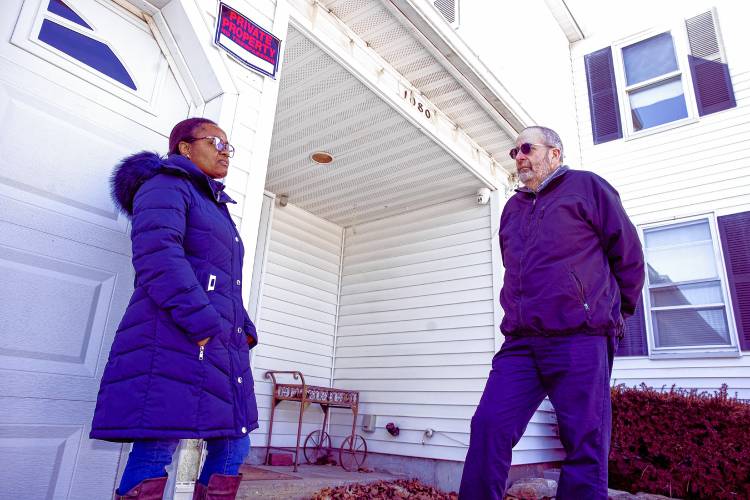
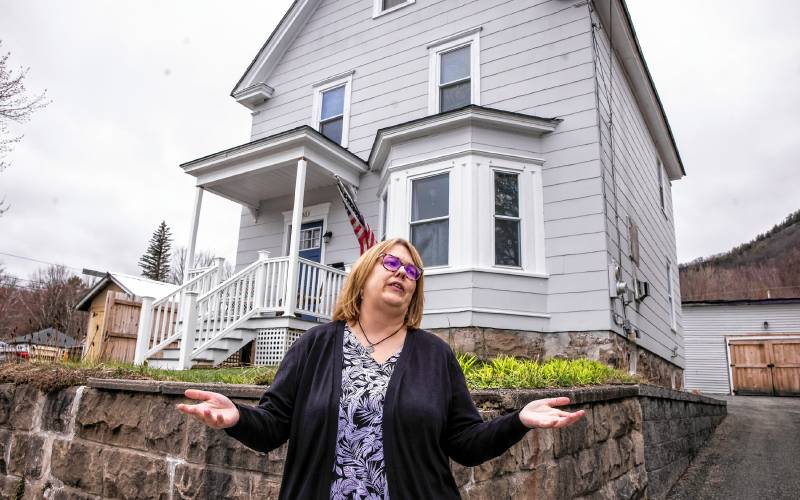

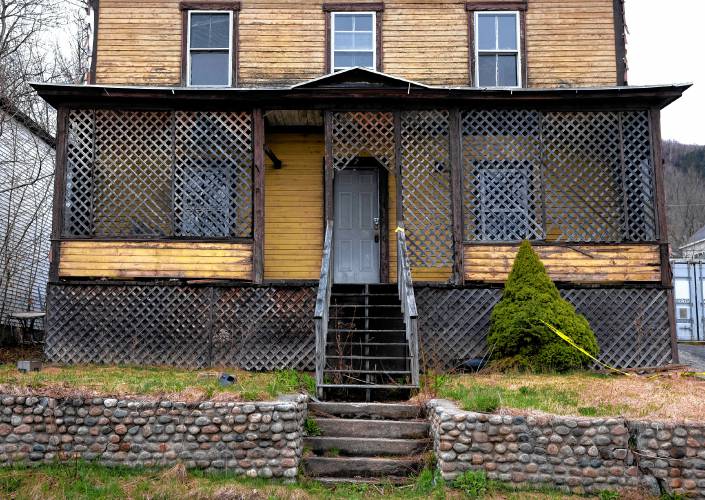
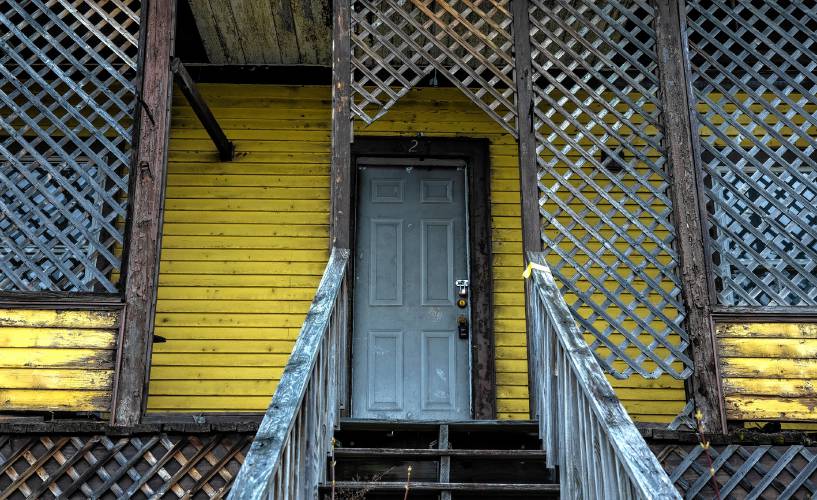
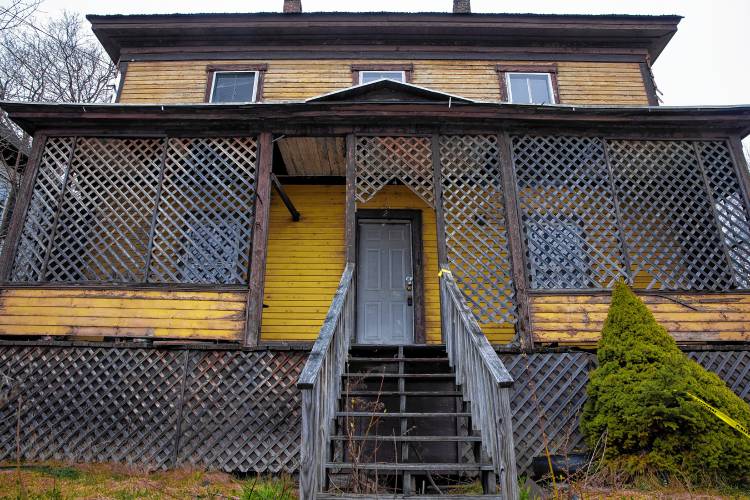
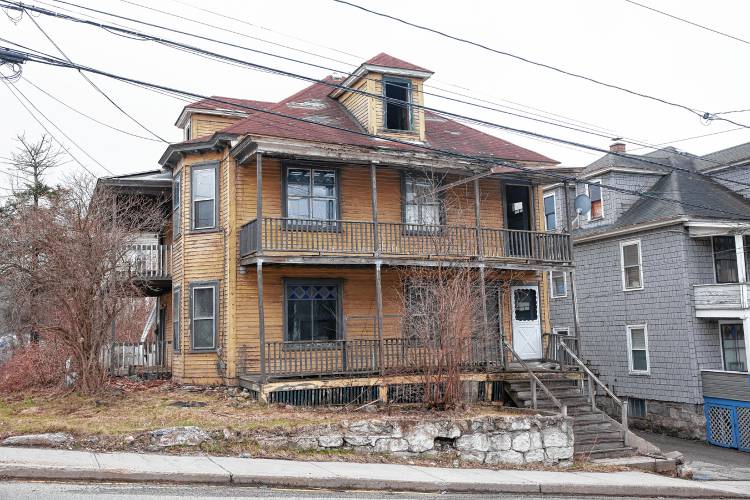








 New Hampshire committee seeks to prevent domestic fatalities like murder-suicide in Berlin
New Hampshire committee seeks to prevent domestic fatalities like murder-suicide in Berlin ‘A little piece of everything I like’: New Pittsfield barbershop brings more than a haircut to downtown
‘A little piece of everything I like’: New Pittsfield barbershop brings more than a haircut to downtown NH judge decides to pause Trump’s birthright citizenship order
NH judge decides to pause Trump’s birthright citizenship order Canterbury honors ‘real heroes’ with updated Military Veterans’ Project
Canterbury honors ‘real heroes’ with updated Military Veterans’ Project
